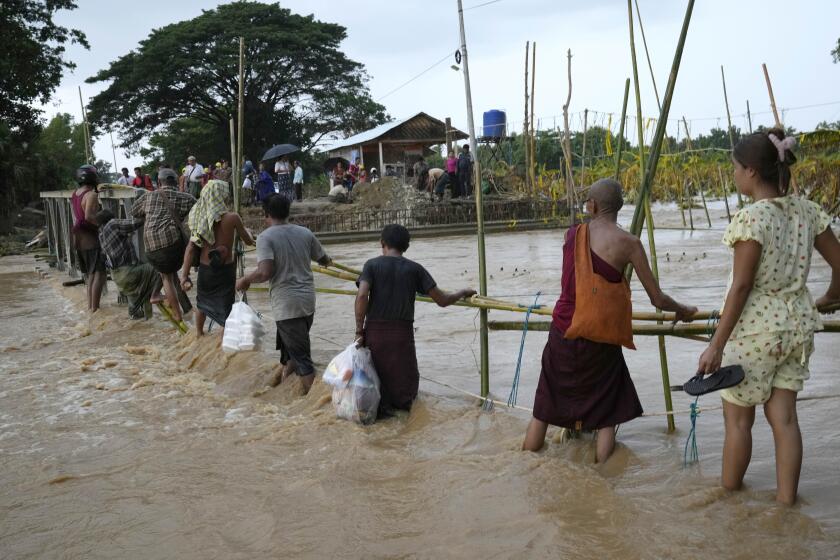AP correspondent was leading China watcher
John roderick, an Associated Press correspondent who won acclaim for his reports on Mao Tse-tung and other communist guerrilla leaders while living with them in their cave headquarters in the mid-1940s, has died. He was 93.
Roderick died March 11 at his home in Honolulu after a struggle with heart problems and pneumonia, friends and family said.
He was an avid journalist to the end, completing a memoir about his restored farmhouse in Kamakura, Japan, and writing his final piece for AP last month, a personal reflection on China.
Roderick was a leading China watcher for decades, covering the country from its pre-revolution days to the economic reforms of the 1980s. Reporting on Chinese events from the outside in the years after Mao’s victory in China’s civil war, he reopened AP’s bureau in Beijing in 1979.
Chinese Premier Chou En-lai once praised Roderick as the journalist who “opened the door” to China for foreign news media.
Roderick’s career with AP spanned five decades with postings in Asia, Europe and the Middle East. In 1977 he was named an AP special correspondent -- one of only a handful -- and in 1985 the Japanese government honored him with its Order of the Sacred Treasure.
China was his passion, and a high point in his life came when as a 31-year-old reporter he spent seven months living among the communist rebel leadership in their capital, Yan’an, in central China between 1945 and 1947.
The city was flattened by Japanese bombers in 1938, and by the mid-1940s was a dusty honeycomb of thousands of caves dug out of the hills on the edge of the Gobi Desert. Mao and his communist followers had gathered in the city in 1935, at the end of their “Long March” across China to escape their Nationalist Chinese foes.
In his book, “Covering China,” Roderick detailed how at meals, during dances and in conversations he took stock of Mao, Chou and other top communists -- men who would soon rule the most populous nation on Earth.
“I admired the fact that they were trying to do something for the poor Chinese,” he said. His opinion of Mao, though, soured with the brutality of communist rule and the failure of communist policies.
After Yan’an, Roderick covered the breakdown of peace talks between the communists and nationalists and the ensuing Chinese civil war from Beijing, Shanghai and Nanjing.
In 1948, he arrived in Amman, Jordan, two weeks after the creation of Israel. During the 1950s he spent time in London and Paris. He covered the fall of the French garrison at Dien Bien Phu, Vietnam, in 1954. After subsequent postings in Hong Kong and Paris, Roderick returned to Asia for good.
Born in 1914, in Waterville, Maine, Roderick was orphaned at 16. He joined AP in Portland, Maine, in 1937 after graduating from Colby College.
In 1942, he moved to AP’s office in Washington, D.C., and the following year was drafted into the Army. He was assigned to the Office of Strategic Services, the forerunner of the CIA, and sent to Kunming, capital of China’s Yunnan province. After the war, he returned to AP.
Roderick went to Tokyo in 1980 as a special correspondent and roamed Asia. He retired in 1984 at 70, but continued to write background stories for AP on China and the Middle East.
More to Read
Sign up for Essential California
The most important California stories and recommendations in your inbox every morning.
You may occasionally receive promotional content from the Los Angeles Times.










